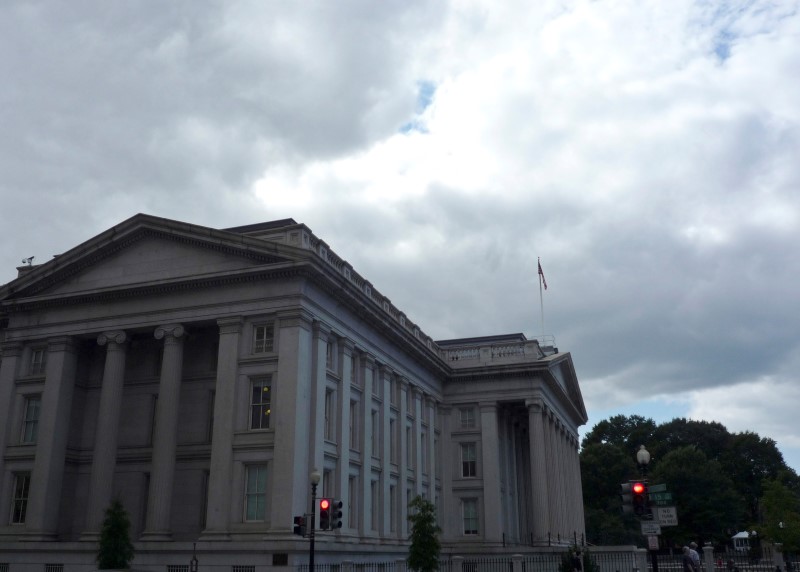By Jason Lange
WASHINGTON (Reuters) - The United States has accused the European Union of grabbing revenue intended for U.S. coffers when it ordered Apple Inc (O:AAPL) to pay up to $14.5 billion in back taxes, a decision that could cause friction at an international summit in China next week.
The EU executive this week retroactively scrapped a tax deal Apple had with Ireland, arguing the technology giant was effectively paying a tax rate of a fraction of 1 percent on its profits.
"I have been concerned that it reflected an attempt to reach in to the U.S. tax base to tax income that ought to be taxed in the United States," U.S. Treasury Secretary Jack Lew said on Wednesday at an event to discuss Washington's position ahead of a meeting of the Group of 20 industrial nations in China next week.
The Apple row is the latest spat between Brussels and Washington over company regulation. Earlier this month, the Treasury issued a detailed legal argument that the EU Commission's approach went against European laws.
Lew said making Apple pay higher taxes in Ireland could let the company deduct those payments from what it owes to the United States, reducing U.S. tax revenues.
The European Commission rulings appeared to be highly focused on U.S. companies, Lew said.
"We think that it undermines the environment in Europe for international business because it creates uncertainty that ultimately will not be good for the European economy," Lew said at an event hosted by the Brookings Institution in Washington.
For now, other U.S. companies under scrutiny for their EU tax arrangements are staying in the background as Lew, Apple and certain industry trade groups lead the charge against the European Union action.
Online retailer Amazon.com Inc (O:AMZN), for example, declined to comment on an EU investigation of the tax treatment of royalties paid by a Luxembourg unit. In the past, Amazon has said that it received no special treatment.
However, a trade group representing U.S. technology companies said it is concerned the European Union will hit other firms with retroactive penalties.
"It appears ... they've invited folks to come forward and try and claim a piece of this settlement," said Jennifer McCloskey, director of government affairs at the Information Technology Industry Council, a business group representing more than 60 global companies, including Apple.
The EU has ordered coffee chain Starbucks Corp (O:SBUX) to pay more Dutch taxes while Amazon and restaurant group McDonald's Corp (N:MCD) are still being investigated. Also, the EU has made a series of accusations that Google, part of Alphabet Inc (O:GOOGL), has abused its market power.
Apple has said it will appeal the ruling, issued on Monday.
Critics in the U.S. Congress have denounced the move as a predatory money grab that would encroach on U.S. government jurisdiction and ultimately add to the federal deficit.
European officials, however, have suggested that U.S. laws were encouraging companies to avoid taxes, and the EU denies it is “grabbing” U.S. tax receipts.
It notes that the United States has chosen not to apply tax rules that would bar Apple from earning the money tax free. Since the EU’s argument is based on the fact that the income in question is earned by a subsidiary effectively not liable for tax anywhere, the EU says that if the United States did tax the money, the position would be different.
Officials from the United States, the European Union and other G20 economies will meet in Hangzhou, China next week and were due to discuss how to clamp down on international tax avoidance.
The G20 endorsed a package of measures last year to tackle corporate tax avoidance, but questions have remained about whether countries will follow through on the plans.
The Obama administration so far has failed to convince a divided Congress to overhaul U.S. business tax laws, which feature above-average tax rates, encouraging companies to be taxed overseas.
Lew said it appeared unlikely America would reform business tax laws before Obama's term ends in January, but that progress could be made early in the next administration. The United States will hold a presidential election on Nov. 8.
(Addtional reporting by David Morgan; Editing by Chizu Nomiyama, Jeffrey Benkoe and Bill Rigby)
